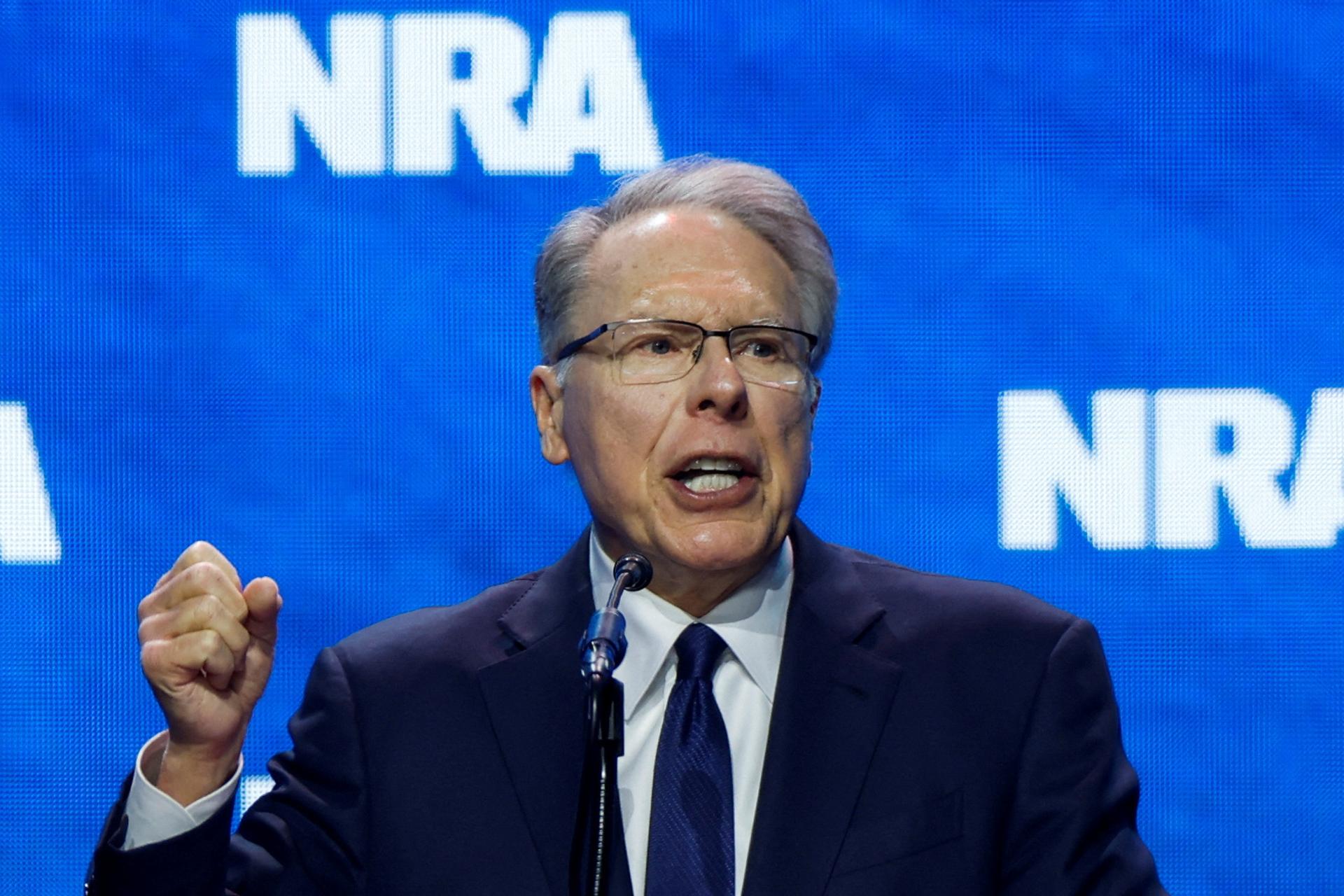The News
Longtime National Rifle Association leader Wayne LaPierre said Friday he would resign, days before a civil corruption trial is set to get underway in New York.
LaPierre has led the United States’ biggest gun rights group since 1991, playing a prominent role in the evolution of the nation’s gun culture. He cited health reasons for stepping down.
SIGNALS
Resignation follows years of scandal and financial turmoil
The later years of LaPierre’s tenure were marred by scandal, with a civil trial alleging corruption and the misuse of almost $64 million by NRA executives finally set to begin in Manhattan Monday.
New York Attorney General Letitia James first alleged in 2020 that LaPierre and other NRA leaders had exploited the nonprofit’s funds for personal trips, accepted lavish gifts from vendors, and conducted financial deals with board members. On Friday she called LaPierre’s resignation a “validation” of the claims – but vowed it would “not insulate him or the NRA from accountability.” In 2021 the NRA unsuccessfully tried to file for bankruptcy to dodge the lawsuit. Stephen Gutowski, the founder of guns publication The Reload, told CNN that LaPierre resigning “feels like an attempt to try and find a settlement.”
NRA faces plummeting membership, despite a post-pandemic increase in gun owners
LaPierre’s resignation comes as the NRA faces a steep decline in membership, losing almost 1 million members since 2018, The Reload reported. Although gun ownership expanded during the pandemic, many of these owners are not joining the NRA. Meanwhile, current members are aging and donating less to political action committees, according to an analysis by The Trace. One dissident NRA board member and LaPierre critic said that the organization has “lost credibility.”
Some Republicans are shifting to support tighter gun controls
As the NRA stumbles, there are signs that some Republicans – particularly the younger generation – may be shifting from the party’s traditional position on gun rights.
Gen Z conservatives who grew up in a climate of increased mass shootings – are more likely to believe in tougher gun laws, such as psychological exams for all gun purchasers, Politico reported. Four current and three former U.S. senators have changed their positions on gun control since the Sandy Hook shooting in 2012, the Washington Post reported, underscoring how the failure to change laws “continues to haunt many who held power at the time.” Former senator Mark Udall of Colorado, who expressed coming under pressure from the NRA during reelections, said he would change his previous position against assault bans and “take the political heat.”

